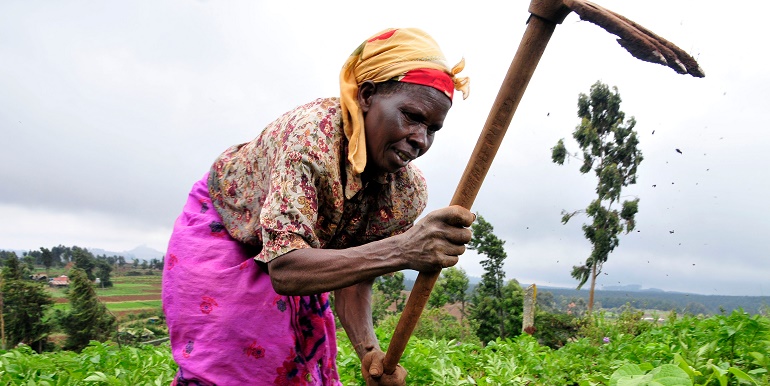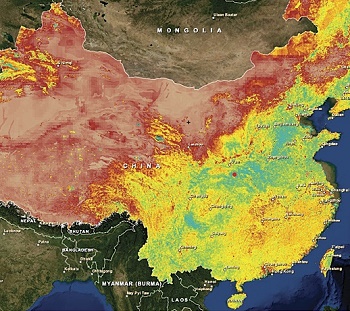FAO and Unesco-IHE aim to improve water management in Near East and Africa with remote sensing
 The Netherlands and FAO are expanding their collaboration in the area of water management with a 7 million US dollar donation by the Dutch government to support the use of remote sensing technology in helping water-scarce countries in the Near East and Africa to monitor and improve the way they use water for crop production.
The Netherlands and FAO are expanding their collaboration in the area of water management with a 7 million US dollar donation by the Dutch government to support the use of remote sensing technology in helping water-scarce countries in the Near East and Africa to monitor and improve the way they use water for crop production.
Unesco-IHE will play an active role in the programme by focusing on water productivity data quality control and water accounting.
FAO Director-General José Graziano da Silva and Gerda Verburg, Permanent Representative of the Kingdom of the Netherlands to FAO signed a MoU for the project at the FAO headquarters on 26 November.
Optimising agricultural production
The additional donation brings the total budget up to 10 million US dollar for the Dutch-funded project that uses satellite data to find land areas where water use is not translating into optimal agricultural production, identify the source of the problem and recommend different planting and irrigation techniques.
 The amount of water required for crop under irrigation is calculated by multiplying the reference evapotranspiration by a crop coefficient (Kc).
The amount of water required for crop under irrigation is calculated by multiplying the reference evapotranspiration by a crop coefficient (Kc).
Real-time data on cropped areas
A key component of the four-year programme is an updated data portal of interpreted remote sensing satellite images that show the state of cropped areas in near real-time.
Unesco-IHE specifically, will be responsible for the quality control of water productivity. An area the institute has been working on for years.
Professors Pieter van der Zaag and Arjen Hoekstra have co-developed the concepts of water productivity and green and blue water consumption.
Water consumption along full supply chain
Professor Hoekstra, who now works at the University of Twente, the Netherlands, created the water footprint as a metric to measure the amount of water consumed to produce goods and services along the full supply chain.
In 2008, professor Hoekstra and partners from various sectors founded the Water Footprint Network aiming to bring together some of the brightest minds committed to demonstrating how water footprint assessment can help us overcome the challenges of unsustainable water use.
More sustainable water use
In the four-year programme of FAO, Unesco-IHE will continue to work on the topic of (un)sustainable water use, using its expertise on water accounting to measure if the water for agriculture is being used sustainably or not.
Wim Bastiaanssen, professor in water accounting at Unesco-IHE, will be leading this process, by working closely together with FAO, and other partners.
This news item was originally published on the websites of FAO and Unesco-IHE.
Read also on this website
• Stockholm World Water Week: More crop per drop with satellites measuring water productivity, 26 August
More information
Unesco-IHE
Delft, the Netherlands
+31 15 2152321
www.unesco-ihe.org
Water footrint network
The Hague, the Netherlands
+31 85 484 9600
www.waterfootprint.org/en
FAO Land and water division
Rome, Italy
+39 6 570 53 843
www.fao.org/nr/water



